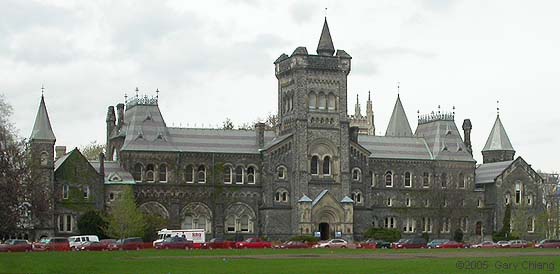Karen Seidman - MONTREAL - Three days into her new job as McGill University’s principal, Suzanne Fortier was dealing with the news Monday that the school was surpassed for the first time by its rival, the University of Toronto, in the latest QS World University Rankings.
As far as principals’ headaches go, this might not rate up there with an unexpected budget cut of $19 million — such as the one Fortier’s predecessor Heather Munroe-Blum had to cope with last December — but university rankings are taken seriously in today’s competitive world and, like it or not, universities know that students and their parents actively consult the myriad rankings that are published.
So news of being ousted from the top Canadian spot — for the first time the leading rankings agency started publishing the rankings in 2004 — had to hurt.
To Fortier’s credit, she didn’t shy away from the results, noting in an interview that she was happy with McGill’s impressive academic standing as one of the top 25 universities in the world — but that the results were also a motivating factor for a new principal who “knows in which direction I’d like to see us move.”
Alvin Shrier, a physiology professor at McGill and past president of the McGill Asociation of University Teachers, blamed McGill’s chronic underfunding for the drop.
“It’s only a question of time till it becomes harder to attract top people,” he said.
In addition to being bested by U of T in the overall rankings, McGill was beaten by its rival also in the research subcategory — so perhaps the arrival of Fortier, with her strong background in research as former president of the Natural Sciences and Engineering Research Council, is timely.
Danny Byrne, editor of topuniversities.com, which publishes the QS rankings, said when they asked 62,000 academics around the world which universities are leaders in research, U of T “did brilliantly,” ranking 13th compared to 31st for McGill.
In the employer survey, however, comparing where the best graduates come from, the two universities were neck and neck, he said.
McGill — long considered the Harvard of the north — has been slipping in some recent rankings, such as the World Reputation Rankings and the 2012 Times Higher Education world rankings.
Overall, the QS rankings hinted at a problem across the country with faculty-student ratios, suggesting Canada’s dwindling public funding for post-secondary education is finally beginning to take its toll.
“We believe this is related to funding and a slowdown in hiring,” Byrne said in an interview from Britain. However, he said both McGill and U of T are still doing reasonably well in that category, while other Canadian universities are really struggling.
Still, Fortier said student-faculty ratios is what most concerns her about the latest ranking.
“We want our graduates to be people who have not only knowledge but creativity, and the more we put them in environments where they can have dynamic interactions with professors, the better it is,” she said. “When student-faculty ratios increase, we’re certainly not going in the right direction.”
While the top 100 universities has been diversifying in recent years in the QS rankings, with more Asian and continental European universities making the grade, the same heavyweight players still dominate the top 10, with the Massachusetts Institute of Technology, Harvard University and the University of Cambridge in the top three spots.
They are followed by University College London, Imperial College London, University of Oxford, Stanford University, Yale University, University of Chicago, California Institute of Technology and Princeton University.
On the bright side, Canada saw three new entries on the list, with the Université de Sherbrooke, Memorial University of Newfoundland and the University of Windsor. And we were the seventh-best performing country, tied with Italy, at 26 universities each.
There are now 800 universities on the list, and 76 countries represented.
And while Quebec’s precarious funding situation could be cited as a reason for McGill losing ground to U of T this year, it should be noted that the Université de Montréal, with that same paltry funding formula, moved up the list to 92 from 114 last year in the overall category.
“U de M continues to show it is being recognized for its excellence on the world scale,” said rector Guy Breton. “Our teachers, researchers, students and personnel have all contributed to the increase in our reputation.”
Byrne noted the erosion of U.S. dominance in the rankings.
“On average, the public universities there are losing ground on a yearly basis after 10 years of neglect, funding cuts and tuition increases,” he said.
With international competition intensifying, he said, governments are prioritizing higher education as everyone wants to produce the cutting edge research that will lead to the next Google or Apple.
“More countries are investing more money and taking it more seriously, so there’s been an erosion of the established order,” said Byrne. “There’s a global war going on.”
And McGill is now licking its wounds — at least until the next ranking.
McGill no longer top Canadian university
U of T surges up




























Laissez un commentaire Votre adresse courriel ne sera pas publiée.
Veuillez vous connecter afin de laisser un commentaire.
Aucun commentaire trouvé